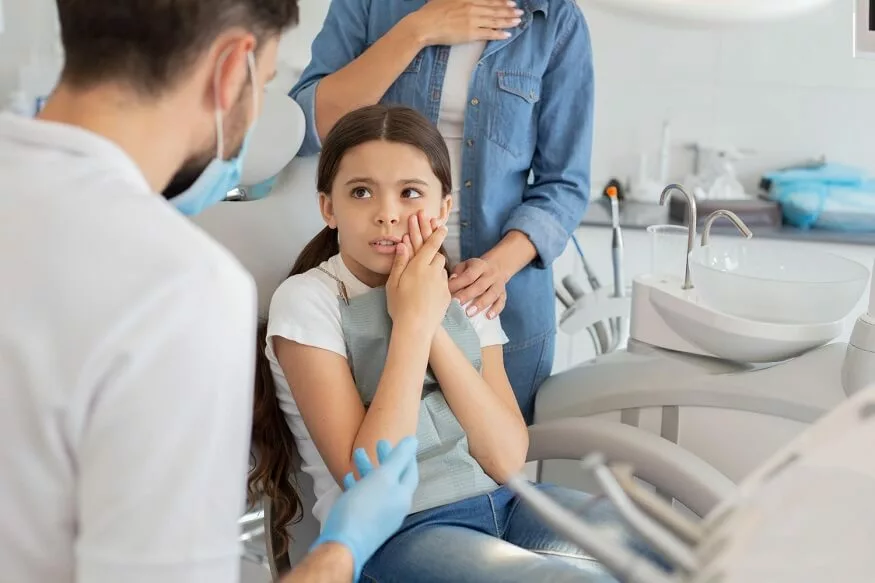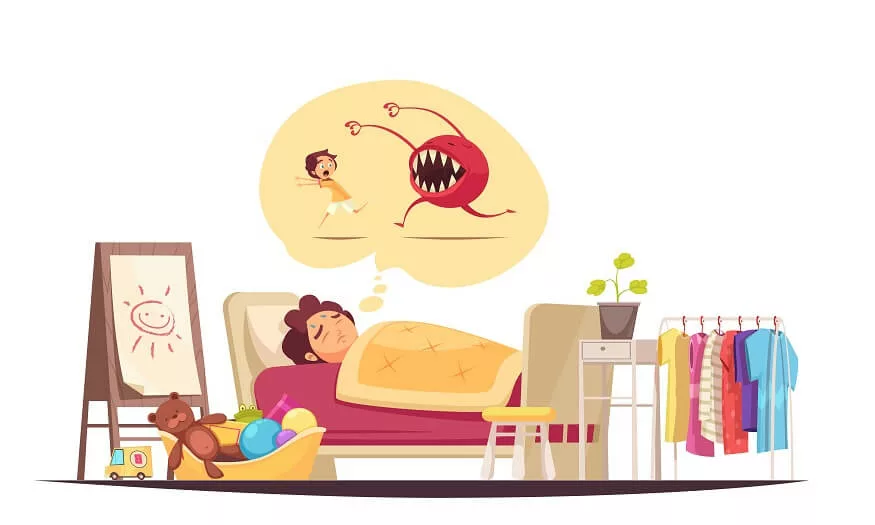In the vibrant journey of childhood, oral health plays a pivotal role in ensuring overall well-being. However, children, with their love for sweets, exploration, and sometimes unwillingness toward dental hygiene, can encounter various dental challenges. Let’s dive into the world of common dental problems experienced by children, understanding the nuances of oral health problems and how parents can navigate these challenges.
Tooth Decay: A Sweet Dilemma
- Common Dental Problems, Common Woes: Among the frequent common dental problems faced by children, tooth decay takes the lead. The indulgence in sugary treats, combined with less-than-enthusiastic brushing habits, creates an environment favourable to cavities. The tiny, vulnerable teeth of children are more prone to decay, making it imperative for parents to actively monitor their sugar intake and instil effective oral hygiene practices.
- Parental Proactivity: Prevention is the key when it comes to tooth decay. Parents can take proactive steps by moderating the consumption of sugary foods and beverages, encouraging regular brushing with fluoride toothpaste, and scheduling routine dental check-ups. Early detection and intervention significantly contribute to minimising the impact of tooth decay.
Gum Disease in Little Gums
- Oral Health Problems Beneath the Surface: Gum disease is not exclusive to adults; children can also experience inflammation and bleeding of the gums. Gum-related problems might arise from inadequate brushing, poor oral hygiene, and sporadic dental examinations. Future issues could get worse if these worries are ignored.
- Building Healthy Habits: Parents can foster gum health by teaching children proper brushing techniques, emphasising the importance of reaching the gum line. Regular flossing, when age-appropriate, aids in removing plaque between teeth. In addition, routine dental visits allow professionals to monitor gum health and address issues promptly.
Malocclusion: Navigating Teeth Alignment
- Common Teeth Problems and Alignment Woes: Malocclusion, or teeth misalignment, are a few common teeth problems in children. Factors such as genetics, thumb-sucking, or prolonged pacifier use can contribute to the development of malocclusion. While some cases resolve naturally as permanent teeth emerge, others may require orthodontic intervention.
- Orthodontic Solutions: Parents should be attentive to signs of malocclusion, such as difficulty chewing, speech issues, or protruding teeth. Early intervention by an orthodontic professional can guide teeth into proper alignment, ensuring a healthier bite and preventing potential long-term complications.
Enamel Hypoplasia: A Challenge in Tooth Development
- Oral and Dental Problems in Early Development: Enamel hypoplasia is a condition where the tooth enamel is not properly formed during development, leading to weakened and often discoloured teeth. This can result from various factors, including malnutrition, illness, or exposure to certain medications during tooth development.
- Nurturing Healthy Enamel: Parents can support enamel health by ensuring their child receives a balanced diet rich in essential nutrients, particularly calcium and vitamin D. Regular dental check-ups enable professionals to monitor enamel development and address concerns promptly.
Also Read: Childhood Dental Health and Nutrition: Foods that protect and harm young teeth
Teething Woes: A Rite of Passage
- Frequent Dental Issues in Infancy: Teething is a natural process in a child’s oral development, but it can bring discomfort and irritability. Parents often witness their infants experiencing symptoms like drooling, fussiness, and disturbed sleep during the teething phase as these are some frequent dental issues.
- Comfort Measures: Parents can alleviate teething discomfort by providing age-appropriate teething toys, gently massaging the baby’s gums, and, if necessary, using over-the-counter teething gels recommended by healthcare professionals. Maintaining good oral hygiene even before the eruption of the first tooth sets the stage for a lifetime of healthy dental habits.
Dental Trauma: Handling Unforeseen Events
- Emergencies in Oral Health: While not as common as dental problems, dental trauma can occur due to accidents, falls, or sports injuries. Children, with their boundless energy and enthusiasm for exploration, may encounter situations leading to chipped, cracked, or knocked-out teeth. Quick and appropriate action is crucial in these instances.
- First-Aid Measures: In the event of dental trauma, immediate first aid is vital. If a tooth is knocked out, rinse it gently with milk or saline solution without touching the root, and try to reinsert it into the socket. If this is not possible, place the tooth in milk or a tooth preservation kit and seek emergency dental care. Chipped or cracked teeth are a few of the common teeth problems and should be assessed by a dentist promptly to prevent further damage or infection.
Also Read: Fun Body Awareness Activities For Children
Bruxism: The Nightly Grind
- Teeth Grinding Troubles: Bruxism, or teeth grinding, is a concern that some children may experience, especially during sleep. This repetitive clenching or grinding of teeth is one of the common teeth problems and can lead to tooth wear, jaw pain, and headaches. Identifying and addressing bruxism is crucial for preventing long-term dental issues.
- Protective Measures: Parents who suspect their child is grinding their teeth should consult with a dentist. In some cases, stress or misalignment issues may contribute to bruxism. Dentists may recommend a custom-fitted night guard to protect teeth and alleviate the pressure caused by grinding. Additionally, addressing underlying stressors or contributing factors can aid in managing bruxism.
Dental Anxiety: Nurturing Positive Experiences
- Building a Positive Dental Relationship: Dental anxiety is a challenge that some children may face, and it can hinder regular dental visits and proper oral care. Creating positive dental experiences from an early age is essential in alleviating anxiety and fostering a lifelong commitment to oral and dental problems.
- Child-Friendly Dentistry: Choosing a dentist experienced in paediatric care and creating a child-friendly dental environment can significantly impact a child’s perception of dental visits. Using positive language, explaining procedures in a child-friendly manner, and incorporating elements of play into dental appointments help build trust and reduce anxiety.
Also Read: Guide to Braces for Kids – Dental health for kids with braces
Dietary Choices: Balancing Taste and Health
- Impact of Nutrition on Oral Health: Diet plays a crucial role in oral health. A diet high in sugary snacks and beverages contributes to tooth decay, while a nutritionally balanced diet supports healthy tooth development and overall well-being. Educating children about the connection between their dietary choices and oral health empowers them to make informed decisions.
- Educational Initiatives: Parents can engage children in discussions about the impact of different foods on their teeth. Encouraging the consumption of fruits, vegetables, and dairy products while limiting sugary treats establishes a foundation for healthy eating habits. In addition, regular dental check-ups provide opportunities for professional guidance on dietary choices.
Fluoride: A Powerful Ally in Oral Health
- Harnessing the Power of Fluoride: Fluoride is a mineral known for its remarkable contribution to dental health. It strengthens tooth enamel, making it more resistant to decay. Adequate fluoride intake, whether through fluoridated water, toothpaste, or professional treatments, is crucial in preventing common dental issues.
- Balancing Fluoride Intake: Parents should ensure that their child receives an appropriate amount of fluoride. While fluoride is beneficial, excessive intake can lead to dental fluorosis. Monitoring fluoride levels in drinking water, using fluoride toothpaste in appropriate amounts, and consulting with a dentist for personalised recommendations contribute to optimal fluoride utilisation.
Also Read: What is Dental care: Importance, Causes, Remedies
Navigating the landscape of common dental problems faced by children requires a comprehensive and proactive approach. From preventive measures addressing tooth decay to handling unexpected dental traumas and nurturing positive dental experiences, parents play a pivotal role in safeguarding their children’s oral and dental problems. By integrating these additional insights into their oral care routine, parents can ensure that their children not only enjoy a bright smile today but also lay the groundwork for a lifetime of optimal oral health.
Starting on a journey of holistic education at EuroSchool, where we understand the importance of fostering not only academic excellence but also overall well-being. Just as we prioritise comprehensive learning, including oral health education, our commitment extends to nurturing happy and healthy smiles. Through engaging informative initiatives, EuroSchool aims to instil a sense of responsibility for oral health in our students, empowering them with knowledge that goes beyond textbooks. Join us in shaping bright smiles and confident futures at EuroSchool – where education is not just a syllabus; it’s a holistic experience for a lifetime of well-being.
DISCLAIMER: The information provided on this website is not a substitute for professional medical advice. EuroSchool encourages you to consult with a qualified healthcare professional for any health concerns you may have. The information on this website is not intended to diagnose, treat, cure, or prevent any disease.










